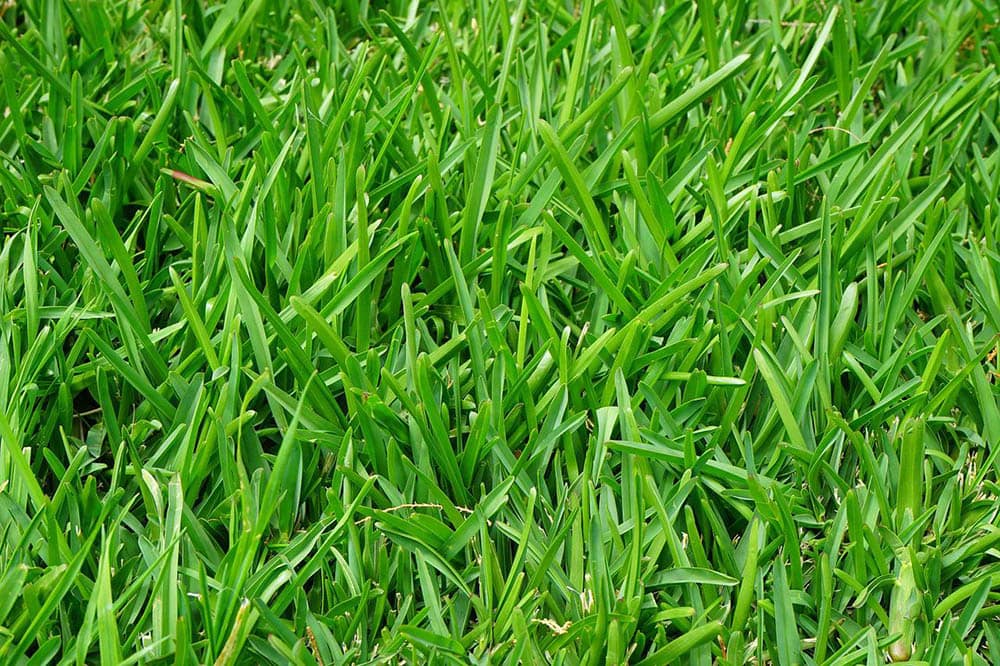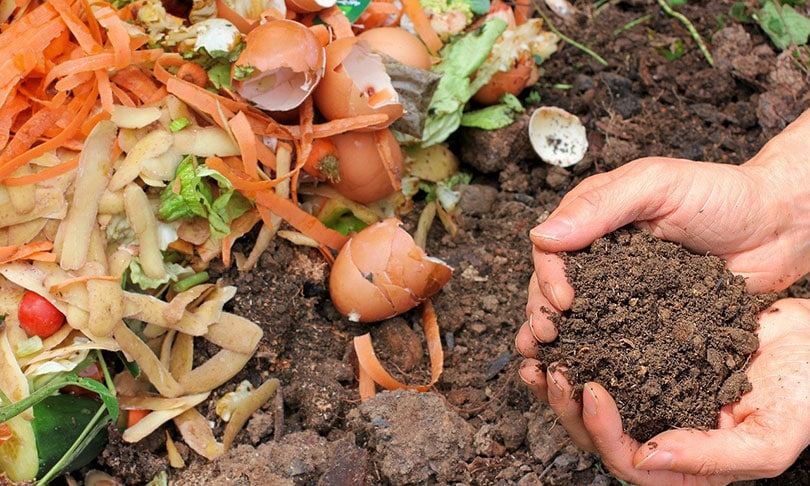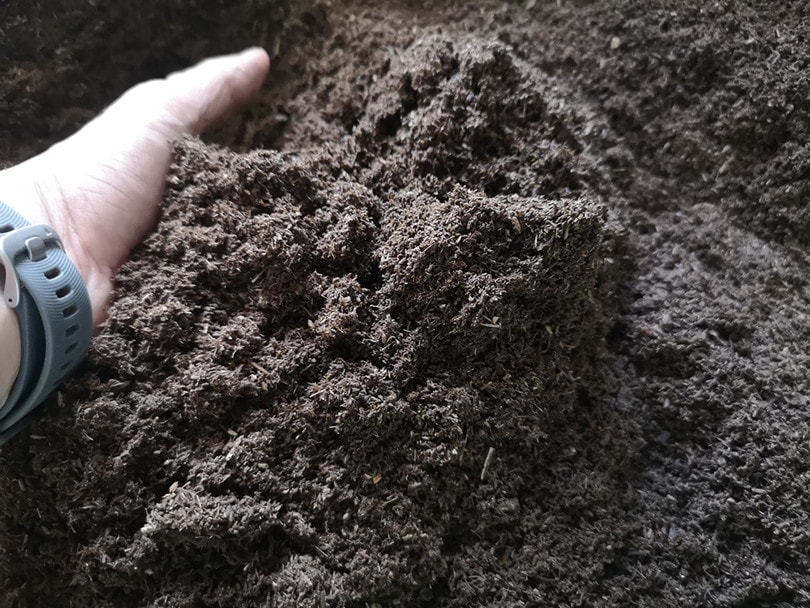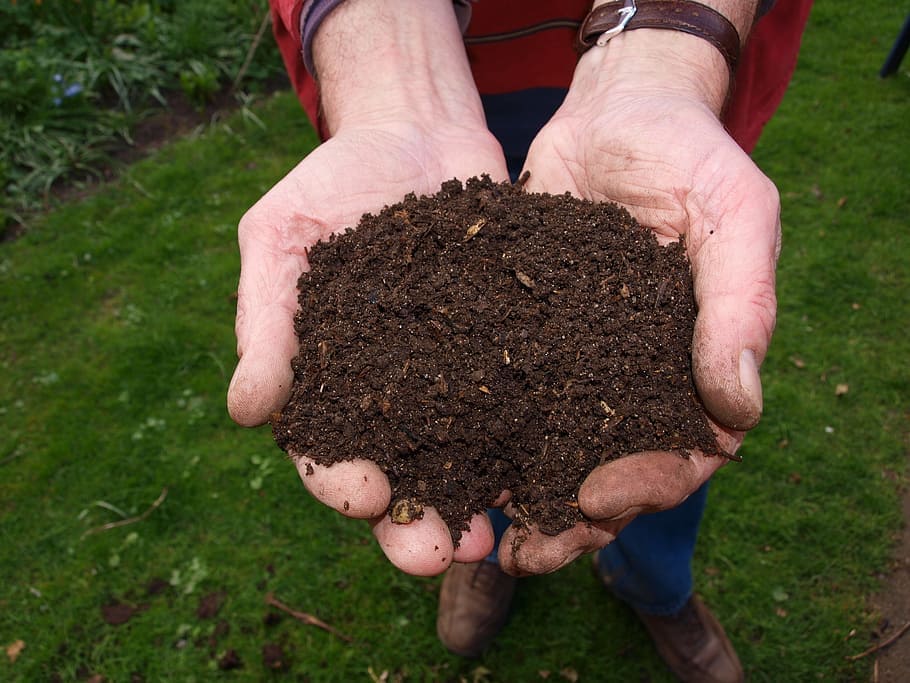Is Compost Good for Grass? Reasons, Facts & FAQs
-
Kristin Hitchcock
- Last updated:

Compost is a great option for grass. It is teeming with minerals and microbes that your grass needs to thrive. Therefore, it can be used to improve the grass’s health and growth. Particularly, compost can help remove the dead layer of grass that builds upon the base. With this dead growth gone, the grass typically grows much better.
In fact, there are several benefits to adding compost to your grass and very few reasons to not do it. When done correctly, compost can be the added boost that your grass needs to thrive. Many people refer to compost as the secret to a super green lawn.
Here’s a quick list of reasons why you may want to add compost to your yard:
- Corrects the soil. There are several things that can be wrong with your soil. Some soil is not the proper pH, while other soil is too sandy. Soil can even be heavy and compacted, which makes it challenging for plants to grow. Either way, no soil is perfect, but compost does help it get a little bit closer.
- Adds nutrients. Grass and other plants are constantly removing nutrients from the soil. These have to be replenished or the plant will run out, which can prevent growth. Compost helps to add these nutrients back to the soil.
- Adds microorganisms. There are several microorganisms that are helpful for plant growth. Preferably, your soil should be full of these things. However, this is not always the case. Chemicals can easily harm these microbes, as can improper soil conditions. Composting helps return some of these to the soil and protect those that are already there.
When Should I Put Compost on My Lawn?

You can technically add compost any time that the ground is not frozen. You simply want the ground to be warm enough for the compost to work its way into the soil—not freeze and then wash off the top. Generally, it is better to add compost over time than a whole bunch at once, as you can potentially cover up the grass.
There are some times that are better for composting than others, though. For instance, you should compost after aerating the lawn, as this helps the compost move into the soil. Overseeding a lawn can also be improved with the use of compost. It improves the germination rate because it helps hold moisture around the seeds.
Therefore, more of the seeds will grow, and you will have a fuller lawn.
Which Compost is Best for Grass?
Preferably, you should use smaller compost. The smaller particles will be able to work their way into the soil easier, which means that it will actually benefit your grass. However, larger particles may smother the grass, which can be a problem. For this reason, we recommended screening or sifting your compost before you add it to your lawn.
However, that doesn’t necessarily mean that you have to screen it before you add it. If you only add a small amount to your yard at a time, then you likely will not smother the grass. A small amount of compost will always have a better time working its way into the soil than using a lot at once.

How Do I Spread Compost Over My Lawn?
The easiest way to spread compost over an area is with a rake. Simply put the compost into small piles around your yard and then rake them around to spread it evenly. It does not have to be exact, as the elements will move it around further. However, be sure that there is not a bunch in one place, as this can suffocate your soil.
There are some commercial compost spreaders that are designed for this particular job. If you have a lot of ground to cover, then this option may be for you. However, many people do not need to invest in one of these, though they are often not terribly expensive.
Does Compost Burn Grass?

Typically, natural compost will not burn the grass. It is not concentrated in the chemicals that fertilizers are, so it does not burn grass like fertilizer. Instead, it will likely suffocate grass before it burns it. Therefore, it is vital that you properly spread the compost out so that it can work its way into the soil and not sit on top of the grass.
Of course, to completely cover your yard you will likely need a lot of compost. Many people do not have access to this kind of volume. Many people turn to fertilizer instead, which can burn your lawn if you apply it too much.
Conclusion
Compost is a great option for grass lawns. It is easy to apply it with a rake and wheelbarrow. If you have access to a lot of compost, then it is a great option to improve your lawn. However, many people do not have access to a huge amount of compost. Therefore, you do not see it added to lawns as often as fertilizers.
Compost can do a lot for a yard. For instance, it improves soil quality. If your soil is too heavy, then it can work to thin it a bit. It can bulk up sandy soil, though. Compost is simply an easy way to improve soil quality—no matter what is wrong with your soil.
It can also be utilized to add micronutrients to the soil, which are necessary for plant growth. This is exactly what fertilizers do, but compost does not utilize chemicals as fertilizers do. Microorganisms can also be found in compost that are helpful to the soil. These microorganisms help your soil improve even after the rest of the compost has given it the initial boost.
Featured Image Credit: Hans, Pixabay
Contents
